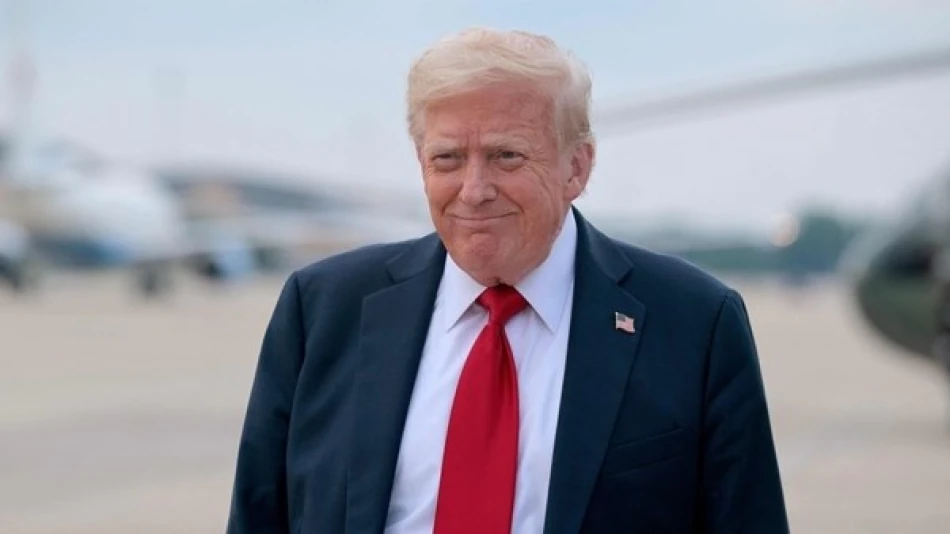
US and Indonesia Forge Landmark Trade Deal, Strengthening Economic Ties
US-Indonesia Trade Deal Opens Massive Southeast Asian Market to American Exporters
The United States has secured a comprehensive bilateral trade agreement with Indonesia that eliminates nearly all tariff barriers for American exports while imposing a 19% tariff on Indonesian goods entering the US market. The deal represents a significant strategic win for American manufacturers, farmers, and tech companies seeking access to Southeast Asia's largest economy and its 275 million consumers.
A Lopsided Agreement Favoring American Exporters
Under the agreement, Indonesia will remove tariff barriers on over 99% of American products across all sectors on a preferential basis. This sweeping elimination covers agricultural products, healthcare goods, seafood, information and communications technology, automotive products, and chemicals. The comprehensive nature of this tariff removal is unusually broad for a bilateral trade deal, suggesting Indonesia made significant concessions to secure American market access.
In contrast, Indonesian exports to the United States will face a uniform 19% tariff rate, creating a substantial competitive advantage for American producers in the Indonesian market while protecting domestic US industries from Indonesian competition.
Beyond Tariffs: Dismantling Non-Trade Barriers
Regulatory Streamlining for US Companies
Perhaps more valuable than tariff elimination is Indonesia's agreement to dismantle numerous non-tariff barriers that have historically frustrated American exporters. US companies and goods will be exempt from local content requirements—a significant concession given Indonesia's previous emphasis on domestic manufacturing development.
The automotive sector receives particularly favorable treatment, with Indonesia agreeing to accept vehicles built to US safety and emissions standards rather than requiring costly modifications for local compliance. This provision could substantially boost American car exports to a market where vehicle ownership is rapidly expanding alongside middle-class growth.
Healthcare and Technology Sector Wins
American pharmaceutical and medical device companies scored major victories through Indonesia's acceptance of FDA certifications and pre-market approvals. This regulatory harmonization eliminates duplicative testing and certification processes that previously added months or years to market entry timelines.
The agreement also removes burdensome certification and specification requirements for US cosmetics, medical devices, and other manufactured goods—barriers that have historically made Indonesia a challenging market for smaller American exporters lacking resources for extensive local compliance procedures.
Strategic Context: Countering China's Regional Influence
This trade deal fits within broader US efforts to strengthen economic ties across Southeast Asia as competition with China intensifies. Indonesia's willingness to offer such favorable terms likely reflects President Joko Widodo's strategy of balancing relationships between major powers while attracting foreign investment for Indonesia's industrial development goals.
The timing is particularly significant as Indonesia prepares for its 2024 presidential transition and seeks to demonstrate economic progress. Access to American technology and investment could prove crucial for Indonesia's ambitions to move beyond commodity exports toward higher-value manufacturing.
Market Implications and Investment Opportunities
For American exporters, this agreement opens immediate opportunities in a market that has been growing at 5% annually. The elimination of local content requirements particularly benefits US technology companies that can now compete on equal footing with domestic Indonesian firms in government procurement and private sector contracts.
The automotive provisions could trigger increased investment from US automakers in Indonesian assembly operations, potentially creating a hub for regional exports. Similarly, the healthcare regulatory alignment positions American pharmaceutical companies to accelerate product launches across Southeast Asia using Indonesia as a gateway market.
However, the 19% tariff on Indonesian goods may limit reciprocal trade growth and could face criticism from US importers of Indonesian textiles, palm oil, and other products. This asymmetric structure suggests the deal prioritizes American export growth over balanced trade expansion.
Most Viewed News

 Layla Al Mansoori
Layla Al Mansoori






